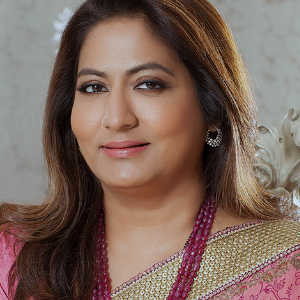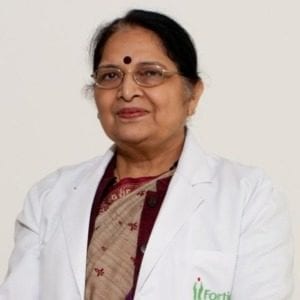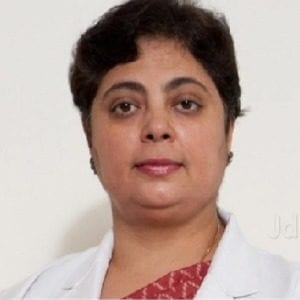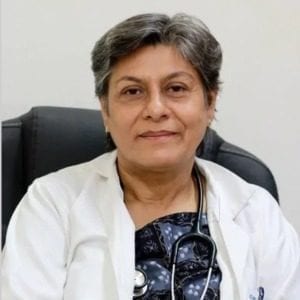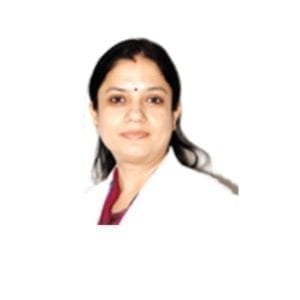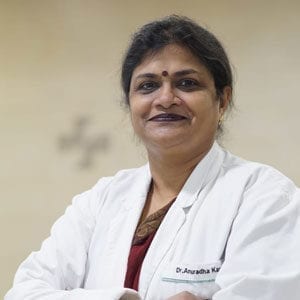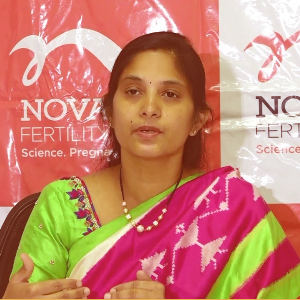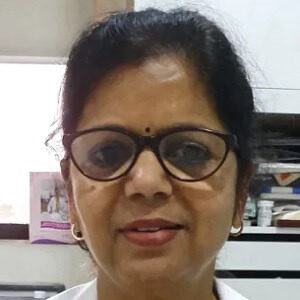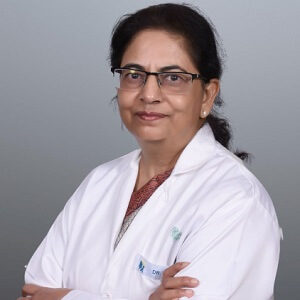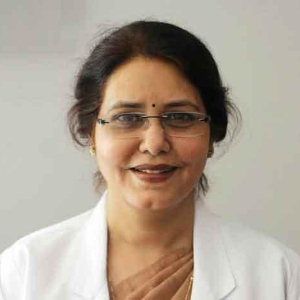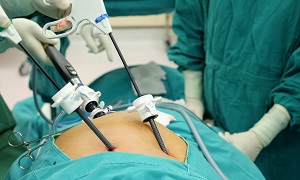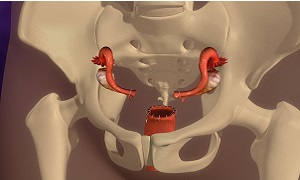Best Endometriosis Treatment Doctors in India.
- IVF Specialist & Gynaecologist, Gurugram, India
- Over 30 years’ experience
Profile Highlights:
- Dr. Nandita Palshetkar is one of the best and leading IVF specialists in India with expertise in all kinds of infertility treatment.
- She along with Dr. Hrishikesh Pai is responsible for starting Assisted Laser Hatching in India in 1998 and also delivered the first laser hatching twins in the country.
- With training in IVF and Micromanipulation from the University of Ghent, Belgium, Dr. Nandita Palshetkar has helped more than 25,000 couples to start a family. She along with her team of experts performs more than 3000 ART cycles every year.
- Obstetrician & Gynaecologist, Gurugram, India
- Over 42 years’ experience
Profile Highlights:
- Dr. Suneeta Mittal is a renowned name in the field of obstetrics & gynecology who has done national as well as international research in women’s health leading to the introduction of emergency contraception & Medical abortion in India.
- Previously, Dr. Suneeta Mittal has served as a professor as well as head of the department of obstetrics & gynecology at All India Institute of Medical Science, New Delhi.
- She has multiple areas of expertise, such as infertility, adolescent reproductive health, endocrinological disorders, laparoscopic and hysteroscopy surgeries, as well as high-risk pregnancies.
- Sr Consultant Doctor in Obstetrics & Gynaecology, Gurugram, India
- Over 30 years’ experience
Profile Highlights:
- Dr. Manavita Mahajan has been a practicing obstetrician & gynecologist in Gurugram for the last 30 years.
- Known for being a strong proponent of safe motherhood practices, Dr. Mahajan has worked to implement these practices in her hospital practice as well. She has also been a speaker and faculty on gynecological laparoscopy at several national conferences because of her laparoscopic surgical skills.
- Dr. Mahajan is also a trainer and faculty in various educational programs.
- Obstetrician & Gynaecologist, New Delhi, India
- Over 30 years’ experience
Profile Highlights:
- With around 30 years of experience, Dr Geeta Chadha is one of the leading gynecologists in Delhi. She has worked at Indraprastha Apollo Hospitals for around 22 years. Earlier she worked as a gynecologist at Kolmet Hospital as well as Sharma Nursing Home in New Delhi.
- Dr. Geeta Chadha has multiple expertise such as minimally invasive surgery like organ-preserving in women with benign gynae conditions plus infertility and high-risk obstetrics.
- Obstetrician & Gynaecologist, Gurugram, India
- Over 20 years’ experience
Profile Highlights:
- With an experience of 20 years, Dr. Buchun Mishra is a practicing gynecologist, who is proficient in performing gynae surgeries for ovarian cancer, uterine cancer, and cervical cancer.
- She finished her MBBS in 1999 from Veer Surendra Sai Institute of Medical Sciences and Research, Sambalpur, Odisha. She later completed her DNB in 2011 from Army Base Hospital, in New Delhi. In 2013, she completed her fellowship from Rajiv Gandhi Cancer Institute and Research Center, Delhi.
- Obstetrician & Gynaecologist, New Delhi, India
- Over 30 years’ experience
Profile Highlights:
- Dr. Anuradha Kapur is a gynecologist with the experience of around 30 years, who is the director and head of the obstetrics and gynecology department at Max Super Specialty Hospital, New Delhi.
- She is known as one of the best gynecologists, obstetricians, and infertility specialists in Delhi treating patients who have even suffered repeated IVF failures.
- Max Hospital has awarded Dr. Kapur with the Physician Appreciation Award for her efficiency, precision, dedication, and compassion.
- IVF Specialist and Gynaecologist, Hyderabad, India
- Over 15 years’ experience
Profile Highlights:
- Dr. Saroja Koppala is an expert Gynecologist and Obstetrician who is highly trained and experienced in all forms of ART and has helped in achieving a large number of successful pregnancies.
- She received most of her trainings in infertility and reproductive medicine from prestigious fertility clinics in the UK and has also spent a considerable amount of time in practicing at several renowned hospitals.
- Dr. Koppala finds interest in the management of women with recurrent miscarriage, repetitive implantation failure, failed IVF cycles, endometriosis, adenomyosis and low ovarian reserve.
- Obstetrician & Gynaecologist, New Delhi, India
- Over 35 years’ experience
Profile Highlights:
- Dr. Sushma Prasad Sinha is one of the top Gynaecologists and Obstetricians in India, having over 35 years of experience. She is primarily a well-known name in infertility & IVF with an unrivalled success rate.
- Dr. Sinha specialises in the ovarian cyst, fibroid, endometriosis, and ablation laparoscopic procedures; hysteroscopic surgeries, vaginal surgeries, tubal reconstruction, Colposcopy, loop cone cervical biopsies, and fertility preservation surgeries.
- She works in Indraprastha Apollo Hospital as an obstetrician and gynaecologist.
- Dr. Sushma Prasad Sinha has also written articles for many medical publications and a book chapter titled “Effective Approach to Basic Evaluation of Subfertile Couples.”
- Obstetrician & Gynaecologist, New Delhi, India
- Over 22 years’ experience
Profile Highlights:
- Dr. Sohani Verma is a well-known Gynecologist and Obstetrician in India, with approximately 22 years of experience in numerous treatments in these disciplines. Dr. Verma serves as a senior consultant at Indraprastha Apollo Hospitals.
- She specializes in infertility and IVF treatments, and she also founded a sperm bank in the hospital in 2002. She has 22 years of IVF and infertility experience in the UK and India.
- Dr. Sohani Verma worked as the Academic Coordinator for the Department of Obstetrics and Gynaecology at Indraprastha Apollo Hospitals in New Delhi.
- Gynae Oncologist, Gurugram, India
- Over 25 years’ experience
Profile Highlights:
- Dr. Rama Joshi is an extensively skilled and professional Gynae oncologist in India who specializes in Gyne onco surgery and Robotic surgery for ovarian and other gynecological cancers.
- Dr. Joshi provides treatment and management for cancers of the ovaries, uterus, and cervix and performs all types of gynae onco surgeries.
- She received her training in cancer surgery and robotic surgery from prestigious institutes in France and the USA.
Best Hospitals India for Endometriosis Treatment
Endometriosis Surgery
Endometriosis is an ailment that causes tissue growing normally on the inside lining of the uterus to implant in other parts of the abdomen. The misplaced tissue can lead to symptoms like pain which can occur during a period, bowel movements or sexual intercourse. Having endometriosis also makes it harder for a woman to get pregnant.
Though surgery should be able to relieve your pain as well as improve your odds of conceiving, it can be difficult to know what to expect from surgery.
Purpose
Generally, two main treatments are used by doctors for endometriosis, i.e. medicine and surgery. Surgery is never considered as a first response. It is only considered when medications fail to provide you the desired results.
Surgery is also considered if you are trying to get pregnant but have not been successful. The odds of getting pregnant usually increase after the endometriosis tissue is removed.
It is important to note that you need to discuss properly with your doctor if you are considering surgery, as it is a big decision, especially if you are considering a hysterectomy, which can remove your uterus and possibly your ovaries as well. Without ovaries and a uterus, pregnancy is not possible.
Types
Two main types of surgery are used for treating endometriosis:
- Conservative surgery is for removing as much of the endometriosis tissue as much as possible. But this procedure can preserve your reproductive organs, i.e. ovaries and uterus. This procedure is generally done through small incisions, known as laparoscopy. Laparoscopy can be used for diagnosis as well.
- Hysterectomy is for treating more severe endometriosis. The surgeon first removes your uterus, as well as possibly your cervix and ovaries. If you undergo this procedure, pregnancy will no longer be possible.
Preparation
Your doctors might ask you to avoid certain kinds of medications, before your surgery. You also need to avoid smoking for as long as possible, before and after surgery.
On the day of the surgery, your doctor will advise you not to have any food or liquid for at least 8 hours before the procedure.
Your doctor might also ask you to take a laxative to empty your bowels completely before the surgery.
Procedure
Laparoscopy
The most common procedure for diagnosing and removing mild to moderate endometriosis is laparoscopy.
First, you will be given anesthesia, so that you will not feel any pain. Then your doctor will fill your belly with gas, as this will allow your surgeon to see inside your abdomen.
Next, a few small incisions will be made near your belly button. A lighted scope will be inserted into one of these incisions.
Surgical instruments are going to be inserted into one of these openings.
Using knife, heat or laser, your doctor will be removing as much of the endometriosis tissue as possible, from your organs such as the bladder, ovaries, fallopian tubes and rectum. A sample of this tissue might be sent to the lab for testing. The surgeon will also remove any scar tissue in these organs. At last, your incisions will be closed up as well.
In most cases, a patient should be able to return home the same day of the surgery.
Hysterectomy
Vaginally
The surgeon will first make an incision in your lower pelvis and remove the uterus and other reproductive organs through the incision.
Hysterectomy
The surgeon removes your uterus and your cervix through the vagina, without making any incision.
Laparoscopically
Few small incisions are made in your abdomen. Through these incisions, your surgeon will be removing your uterus and possibly your cervix.
Aftercare & recovery
You should recover faster after laparoscopic surgery than after an open hysterectomy. For the first few days, your activities might be limited after the procedure. Discuss with your surgeon when you should be able to go back to driving, working or exercise. Generally, a full recovery from a hysterectomy can take four to six weeks.
If you undergo a hysterectomy, you will not get a period anymore.
Although surgery can help in relieving pain and laparoscopic surgery can help you get pregnant. It doesn’t necessarily cure endometriosis, even if you undergo a hysterectomy. You might still experience symptoms if you have any endometriosis tissue left in your abdomen.
In around 20 to 40 percent of women, symptoms generally come back within five years. The remaining tissue can continue to grow, and it is not possible to remove every cell of misplaced tissue.
Risks
Although endometriosis surgery is generally safe, like all surgeries it may have few risks, which can include bleeding, infection, damage to any nearby nerves or blood vessels, as well as an abnormal connection between two organs in the abdomen.
If you experience any symptoms such as fever over 38 ° Celsius, redness or swelling at the incision site, heavy bleeding in your vagina or the incision site, or severe pain, then you need to contact your doctor.

